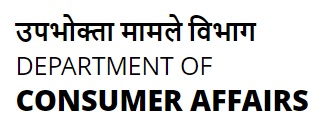Participants are expected to focus on key areas such as; pattern detection accuracy, User-Friendly Extension, Pattern Versioning, Generative AI, Repository Management, Data Collection with Privacy Protection, Crowd sourced Pattern Identification, Cross-Browser Compatibility, and Artificial Intelligence for Detection and Performance Optimization

FinTech BizNews Service
Mumbai, 27 October, 2023: The Department of Consumer Affairs, Government of India in collaboration with IIT (BHU), launched Dark Patterns Buster Hackathon 2023 here today. The deliverables of the Hackathon will be to design & prototype innovative app or software-based solutions such as;
The launch event was attended by law Institutes, Higher Educational Institutes, experts from national and International Academia, students, various companies and e-commerce platforms in both physical and online mode. While preparing the deliverable the participants are expected to focus on key areas such as; pattern detection accuracy, User-Friendly Extension, Pattern Versioning, Generative AI, Repository Management, Data Collection with Privacy Protection, Crowd sourced Pattern Identification, Cross-Browser Compatibility, and Artificial Intelligence for Detection and Performance Optimization. The participants will be evaluated on following few of the many criteria; Innovation, Demonstration of the solution as a turn-key solution, User Interface & User Experience, Accuracy & Reliability, Adherence to Functionalities & Features, Privacy & Compliance etc.
4 rounds
The Hackathon is divided into following four stages/rounds:
The objective of the initiative is to provide protection to consumers from all types of unfair trade practices. In line with the above initiative, Department had published draft Guidelines for Prevention and Regulation of Dark Patterns on 07.09.2023 seeking public comments/feedback/suggestions. A time of 30 days (until 5th October 2023) was given for submitting the suggestions. Department received comments/suggestions from various individuals, law firms, National Law Universities, Government Organizations, Voluntary Consumer Organizations, and Trade Associations like NASSCOM, FICCI and E-Commerce Platforms.
The initiative taken by the Department towards drafting of guidelines and identification of dark patterns was appreciated in general by the industry stakeholders. Besides there were various suggestions for including certain new dark patterns, few more illustrations and modification of definitions of few existing dark patterns in the guidelines.
comments/suggestions
Few of the comments/suggestions being considered for inclusion in the revised guidelines are provided below:
i. Wadhwani Institute of Technology and few individuals (Smt. Kosha Doshi, Sh. Sanju Ahuja, Sh. Ratul Aich, Smt. Paneri Ankit etc.) have suggested to include “Trick Question” as a dark pattern, which briefly can be understood as:
“Trick Question” is a dark pattern, which means the deliberate use of confusing or vague language; in order to misguide or misdirect a user.
Illustration:
While giving a choice to opt, “Do you wish to opt out of receiving updates on our collection and discounts forever?” using phrases like, “Yes. I would like to receive updates” and “Not Now”, instead of the option, “Yes.”
“Saas Billing” is a process of generating and collecting payments from consumers on a recurring basis in a software as a service (SaaS) business model by exploiting positive acquisition loops in recurring subscriptions to get money from users.
Illustration:
No notification is given to the user when free trial is converted to paid
“Rogue Malwares” is a dark pattern using a ransomware or scareware to mislead/trick user into believing there is a virus on their computer and aims to convince them to pay for a fake malware removal tool that actually installs malware on their computer.
Illustration:
When a pirating website/app promises the consumer to provide free content (audio/audio-visual/others) but actually leads to an imbedded malware when the link is accessed
Illustrations:
Illustration:
Forced action” shall mean forcing a user into taking an action that would require the user to buy any additional good(s) or subscribe or sign up for an unrelated service or share personal information, in order to buy or subscribe to the product/service originally intended by the user.
“Confirm shaming” means using a phrase, video, audio or any other means to create a sense of fear or shame or ridicule or guilt in the mind of the user, so as to nudge the user to act in a certain way that results in the user purchasing a product or service from the platform or continuing a subscription of a service, where, primarily, the purpose of the platform is to make commercial gains by subverting consumer choice.
“Nagging” shall mean a dark pattern due to which a user is worn down by repeated and persistent interactions, in the form of requests, information, options, or interruptions, to effectuate a transaction and make some commercial gains, unless specifically permitted by the user.’
Department is in the process of examining the suggestions/comments received and final Guidelines for Prevention and Regulation of Dark Patterns will be notified soon.